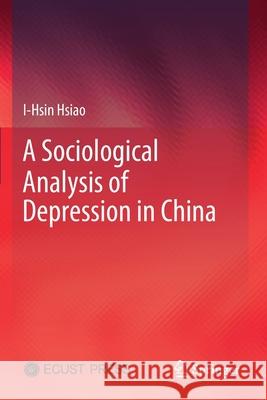A Sociological Analysis of Depression in China » książka
topmenu
A Sociological Analysis of Depression in China
ISBN-13: 9789811564734 / Angielski / Miękka / 2021 / 196 str.
A Sociological Analysis of Depression in China
ISBN-13: 9789811564734 / Angielski / Miękka / 2021 / 196 str.
cena 402,53
(netto: 383,36 VAT: 5%)
Najniższa cena z 30 dni: 385,52
(netto: 383,36 VAT: 5%)
Najniższa cena z 30 dni: 385,52
Termin realizacji zamówienia:
ok. 22 dni roboczych.
ok. 22 dni roboczych.
Darmowa dostawa!
This book explores the relationship between macro-social structure, social construction and micro-healthcare behaviors. It constructs a two-layered and two-faceted sociological analytical framework to analyze the causes of depression in China and account for the comparatively low rate of depression in the country, and provides a sociological interpretation of depression in China from a global perspective that has rarely been adopted in previous sociological studies in China.
Presenting first-hand data and case studies, it describes and analyzes patients’ subjective experience and actions as well as physicians’ viewpoints. It also includes interviews with 34 patients, 4 family members, 3 psychological consultants and 5 psychiatrists.
Offering an integrated interpretation of depression in China from the perspectives of sociology, medical science and psychology, this book is intended primarily, but not exclusively, for the growing body of researchers and students who are looking for ways of analyzing depression, especially in China. It is also a valuable resource for practitioners working in the field.











